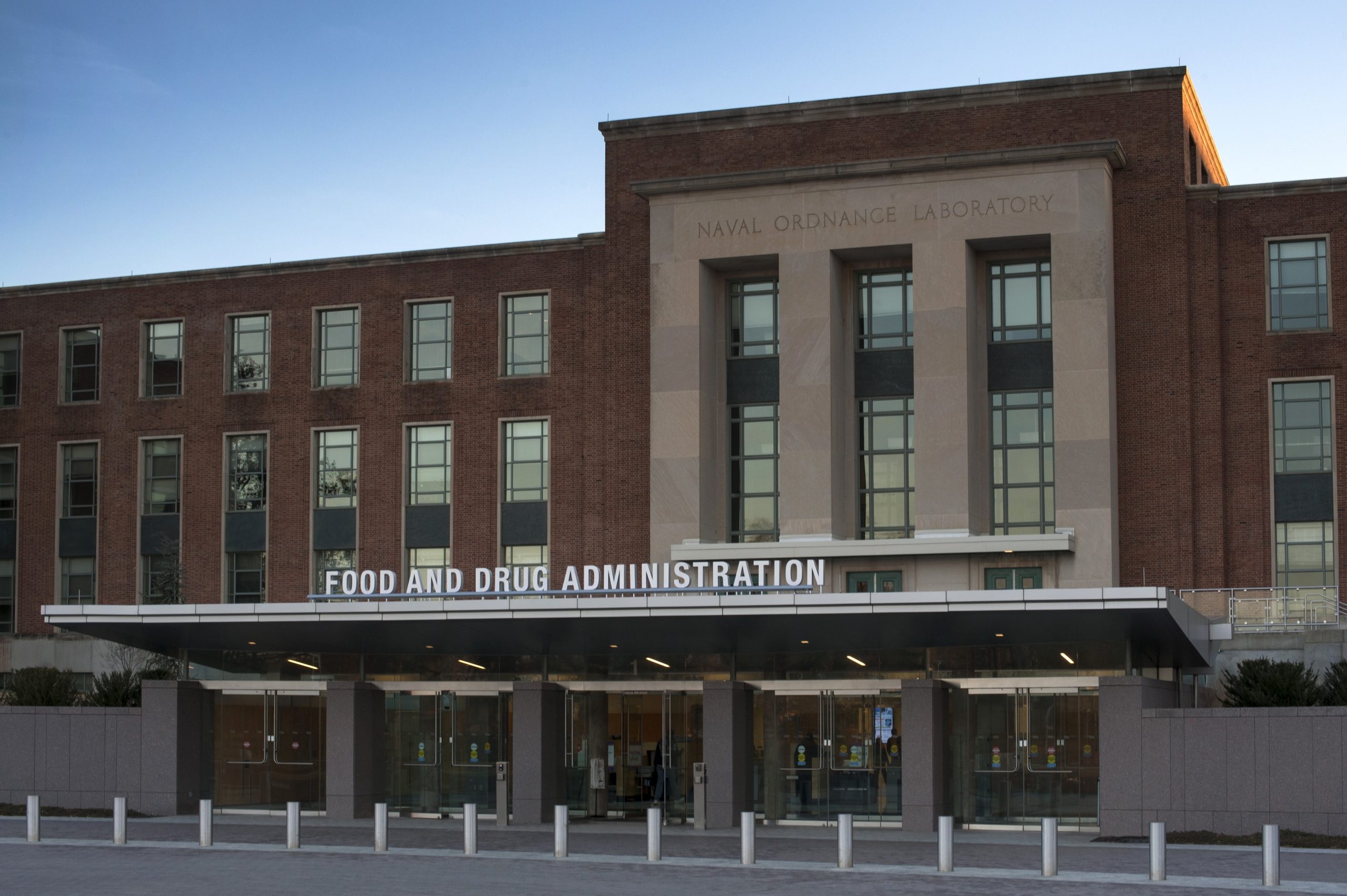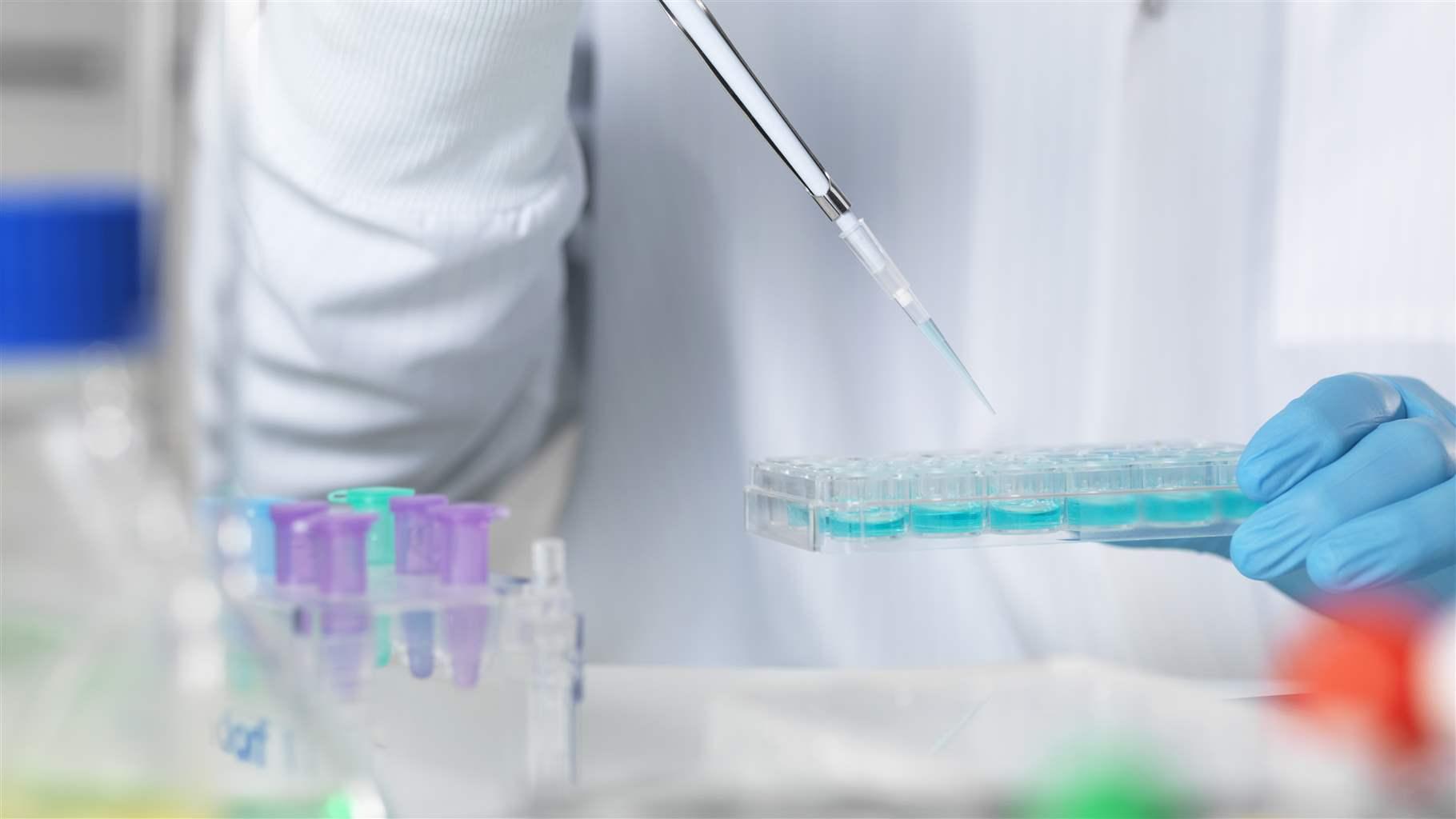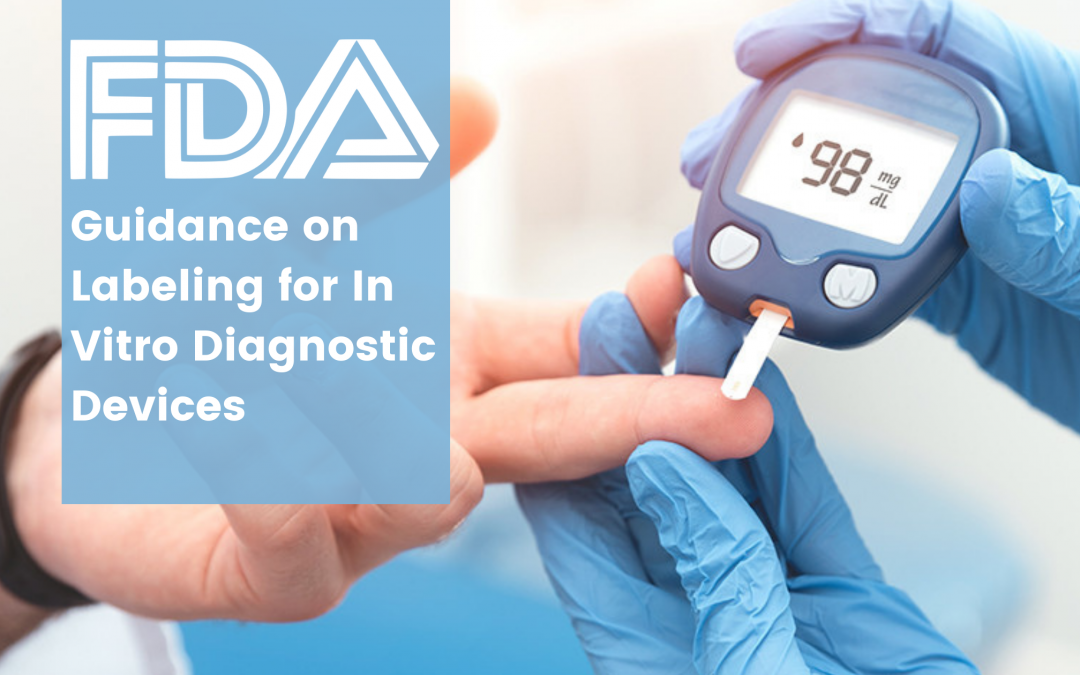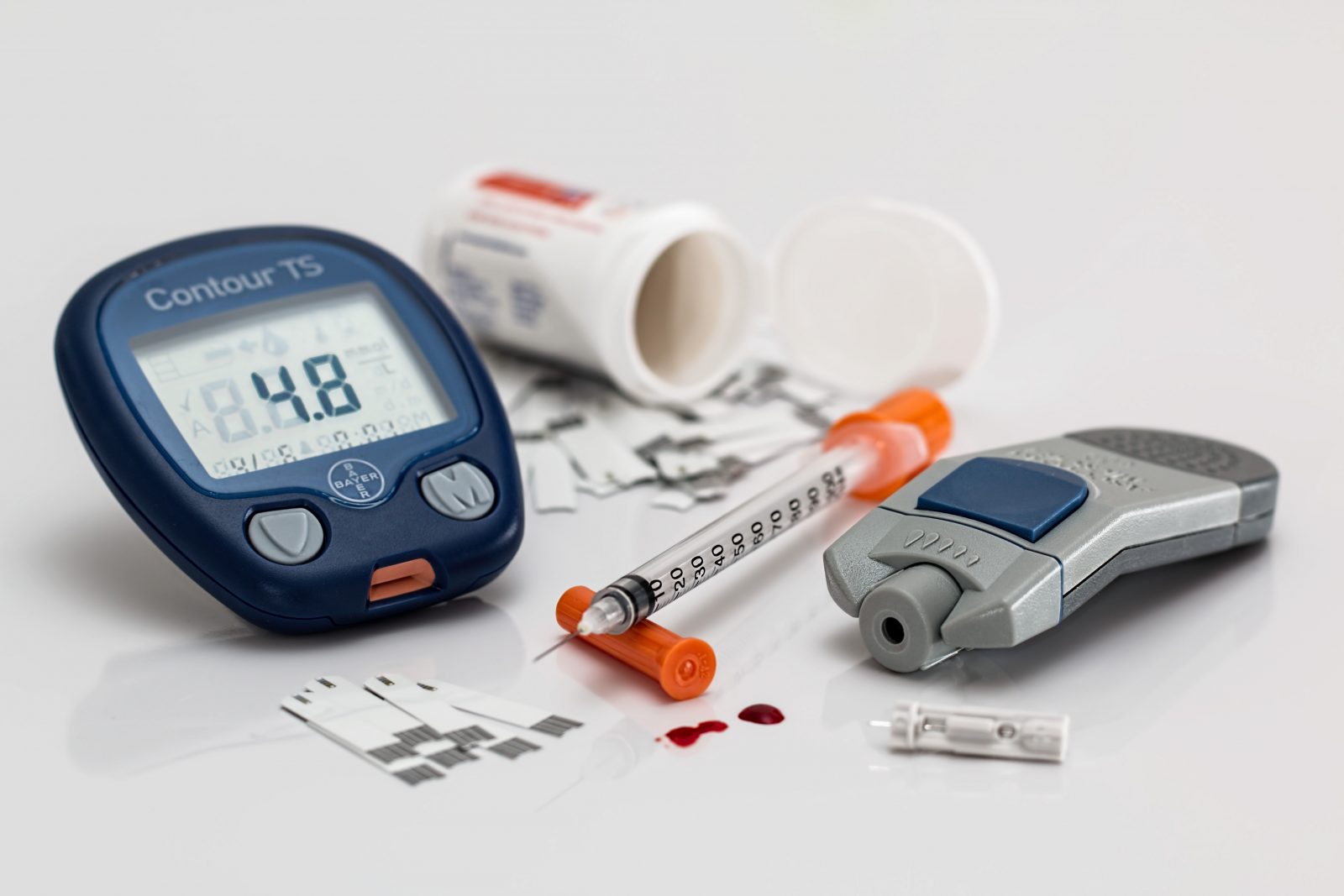The Food and Drug Administration (FDA or the Agency), the US regulating authority in the sphere of healthcare products, has published a general guidance document dedicated to labeling for medical devices. The document describes in detail the general labeling requirements and provides additional clarifications regarding device-specific requirements.
As mentioned in previous articles, the provisions of guidance documents issued by the FDA are non-binding and intended to assist medical device manufacturers and other parties involved in operations with medical devices in achieving and sustaining compliance with the applicable regulatory requirements.

Table of Contents
In Vitro Diagnostic Product Labeling
According to the guidance, in vitro diagnostic products (IVDs) stand for the reagents, instruments, and systems intended for use in diagnosis of disease or other conditions, including a determination of the state of health, in order to cure, mitigate, treat, or prevent disease or its sequelae. These devices are used for collecting samples and conducting further examinations. The regulatory requirements for labeling for such devices are set forth in regulation 21 CFR Part 809, which is dedicated to the labeling of this particular type of medical device.
Label Requirements for the Immediate Container
The document further describes in detail the labeling requirements for specific types of IVDs. In particular, it outlines the scope of information to be included in labeling, which should be placed either on the outside container or accessible through it. At the same time, the label should not impact the use of the device for its intended purpose.
According to the applicable regulatory requirements, the label should contain the following elements:
- Indication of the name of the device;
- Indication of the intended use;
- Warning statement highlighting the hazards associated with the device, together with the indication “For In Vitro Diagnostic Use”;
- Information about the medical device manufacturer, including its name and address, as well as the details about the distributor;
- Information necessary to trace device (e.g., lot number).
The regulation already prescribes the labeling requirements for reagents intended to be used together with IVD devices. It is stated that the label for reagents shall contain:
- The name of the product;
- Information about the quantity or concentration of active ingredients it contains;
- Requirements for storage conditions;
- Instructions for operations;
- Additional details necessary to verify the quality of the product before use, such as:
- Expiration date (date beyond which the product is not to be used);
- Statement of any visual indication of alteration;
- Instructions for a simple check to assure product usefulness;
- The net quantity of contents.

Labeling Requirements for Inserts and Outer Packaging
The present guidance mentions that current legislation provides strict enough requirements regarding both format and order of the information the label shall contain. However, certain deviations from the general requirements could take place if some elements are irrelevant or unavailable. In the case of any discrepancies between the general and device-specific labeling requirements, the latter should prevail.
For example, in the case of reagents intended to be used as a replacement, it would be sufficient to provide information on how they should be identified and used. In the case of instruments intended to be used for multiple purposes, it would be sufficient to provide primary information about the product.
The general rules for inserts and outer packaging require the following information to be provided:
- The proprietary and established product name;
- The intended use of the product and whether it is a qualitative or quantitative type of procedure, e.g., screening, physician’s office, home use, etc.;
- Summary and explanation of the test, including a short history containing methodology and the special merits and limitations of the test;
- The chemical, physical, physiological, or biological principles of the procedure;
- In the case of reagents, the labeling should also contain the common name, warnings, storage conditions, and also indications of instability;
- In the case of instruments, the label shall describe the installation procedures and principles of operations and also provide all necessary instructions regarding calibration, use, and maintenance;
- Specimen collection and preparation for analysis (including additional precautions, additional elements needed, and other recommendations to be considered when using the product for its intended purpose);
- Explanation of the procedure for calculating the unknown, including the definition of each component of the formula, a sample calculation, and the number of significant figures appropriate for the answer;
- Limitations of the procedures;
- Expected values, including the range and how it was established;
- Specific performance characteristics as appropriate, including accuracy, specificity, precision, and sensitivity;
- Bibliography;
- Name and place of business of the manufacturer, packer, or distributor; and
- Date of issuance of the last labeling revision by the firm.
Exemptions from Labeling Requirements
The FDA guidance mentions that there are certain exemptions from the labeling requirements described above. These exemptions should be applied in the following cases:
- The product in question is an investigational device and falls within the scope of the Investigational Device Exemption (IDE) framework;
- The product is also exempt from regulation under the IDE regime; provided the following conditions are met:
- There is a direct indication that the product does not constitute a finished device and is intended to be used for research purposes only, not for real diagnostic procedures; and
- The product is initially intended for additional testing related to the product itself and not to be used for the actual patients.
Labeling of General Purpose Laboratory Reagents and Equipment
Another section of the FDA guidance is dedicated to the labeling requirements for general products intended to be used in the course of in vitro diagnostic procedures. First, the authority mentions that there is no requirement for the manufacturer to provide directions for use for such equipment as the way it should be used is obvious for everyone who has the appropriate qualification, provided that the labeling, in general, complies with the regulatory requirements described herein. The same goes for other products. If it is not possible to provide all necessary information on the packaging of the product itself, additional information should be provided in the label placed on the outer label.
However, there is a scope of mandatory information to be indicated on the product label, namely:
- The name of the product,
- The name and address of the manufacturer,
- The lot number or other elements necessary to ensure traceability of the product.
Other elements that could be indicated in the label placed on the outer package include:
- A declaration of the established name, if any, and quantity, proportion, or concentration of the reagent ingredient stated in a system generally recognized by the user,
- A statement of the purity and quality, including a qualitative statement of any impurities,
- A statement of warnings or precautions for users as contained in the regulations in 16 CFR Part 1500 and any other appropriate warnings, and the statement: “For Laboratory Use”,
- Net quality of contents in terms of weight or volume, or numerical count, or any combination thereof, and
- Appropriate storage instructions.
In summary, the section of the FDA guidance described herein is dedicated to the labeling requirements for in vitro diagnostic devices. The document provides additional clarifications on device-specific requirements for labeling to be considered depending on the type of IVD in question.
Sources:
How Can RegDesk Help?
RegDesk is a next-generation web-based software for medical device and IVD companies. Our cutting-edge platform uses machine learning to provide regulatory intelligence, application preparation, submission, and approvals management globally. Our clients also have access to our network of over 4000 compliance experts worldwide to obtain verification on critical questions. Applications that normally take 6 months to prepare can now be prepared within 6 days using RegDesk Dash(TM). Global expansion has never been this simple.


